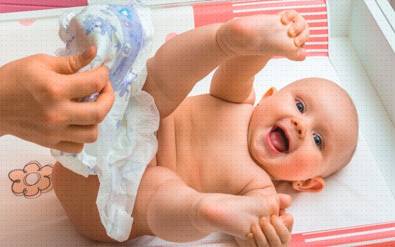Here’s some news you’ll probably want to read without a mouthful of food. According to a new study, baby poo, or more specifically its pH balance, has changed over the past century, a finding scientists say could explain the higher incidence of asthma and allergies in children.
A review of research conducted between 1926 and 2017, which included “measurements” (fecal samples) from 312 healthy, breastfed infants, found that fecal pH increased from 5.0 to 6.5 over that period of time. (pH is a measure of how acidic or alkaline something is, with lower levels indicating that a fluid is more acidic.)
The findings have been published in The American Society of Microbiology’s journal mSphere.
“This steady increase in the fecal pH of infants over the past several generations has largely gone unnoticed by the medical community, but looks to be an indication of a major disruption of the infant gut,” said David Kyle, Chief Scientific Officer at Evolve BioSystems, Inc, where the research was conducted. “This may be a significant contributor to the incidence of allergic and autoimmune disorders.”
So what exactly is going on?
According to the study authors, the pH increase is due to a reduction in Bifidobacterium (a critical type of gut bacteria during infancy) in the infant gut, and an increase in potentially harmful bacteria such as E. coli and Clostridia. Research shows that pH level is an effective way to measure whether an infant’s digestive system has enough good bacteria from the Bifidobacterium group. When these bacteria break down milk, they produce acids- and that acidity shows up in baby’s poo.
“These alarming changes to the infant gut microbiome and thus, gut environment, may be due to modern medical practices like antibiotics, C-sections, and formula feeding,” says co-author Dr. Jennifer Smilowitz. “These are all potentially life-saving medical practices, but have unintended consequences on the infant gut microbiome.” For example, she says, bacteria linked to higher risk of health issues such as colic, eczema, allergies, diabetes and obesity, thrive.
The authors note that the loss of Bifidobacterium and the change in the gut environment, as measured by fecal pH, “present a compelling explanation for the increased incidence of allergic and autoimmune diseases observed in resource-rich nations”.
But more research is sorely needed.
“The need for clinicians to have a quick and reliable method to determine Bifidobacterium levels in baby’s gut, and an effective way to replace the right Bifidobacterium to correct dysbiosis (when bacteria in the gut are out of balance) …are the critical next steps for infant health,” Dr Smilowitz says.
Last year, Evolve BioSystems published the results of a clinical trial of the probiotic Evivo, which contains the good bacteria B. infantis. According to the study, babies given Evivo saw an 80 per cent reduction in potentially harmful bacteria such as E. coli, clostridia, Staph and Strep.
“These results with B. infantis EVC001 demonstrate for the first time that when the appropriate probiotic bacteria is provided in combination with breast milk, it can rapidly and stably colonise the infant gut microbiome while significantly reducing levels of potentially harmful bacteria linked to long-term disease,” said lead author Dr Mark Underwood at the time.



